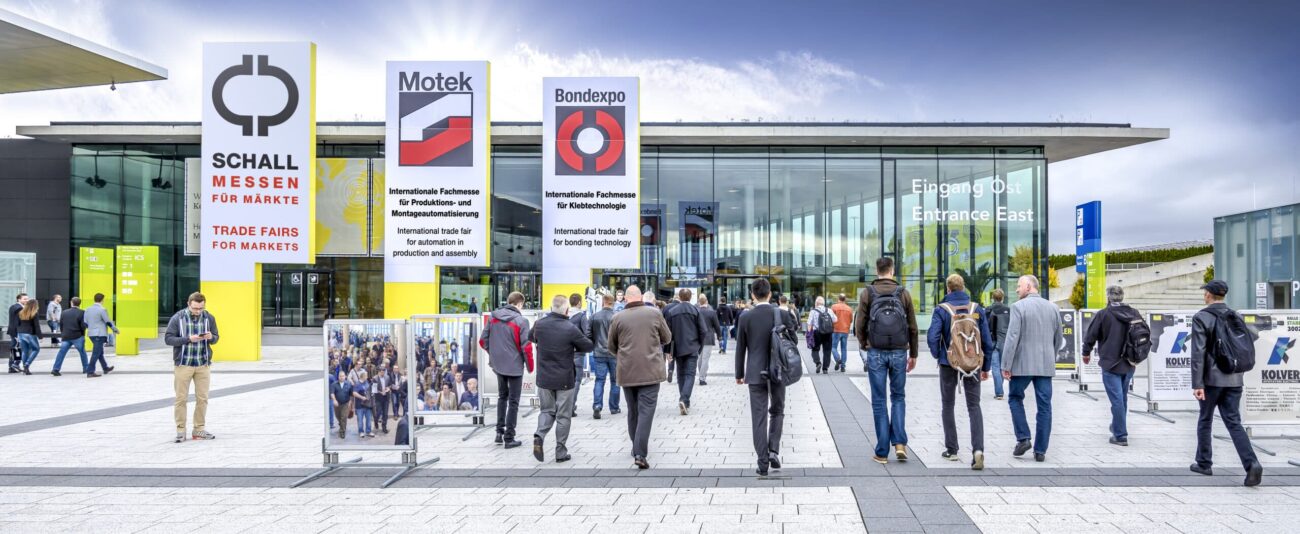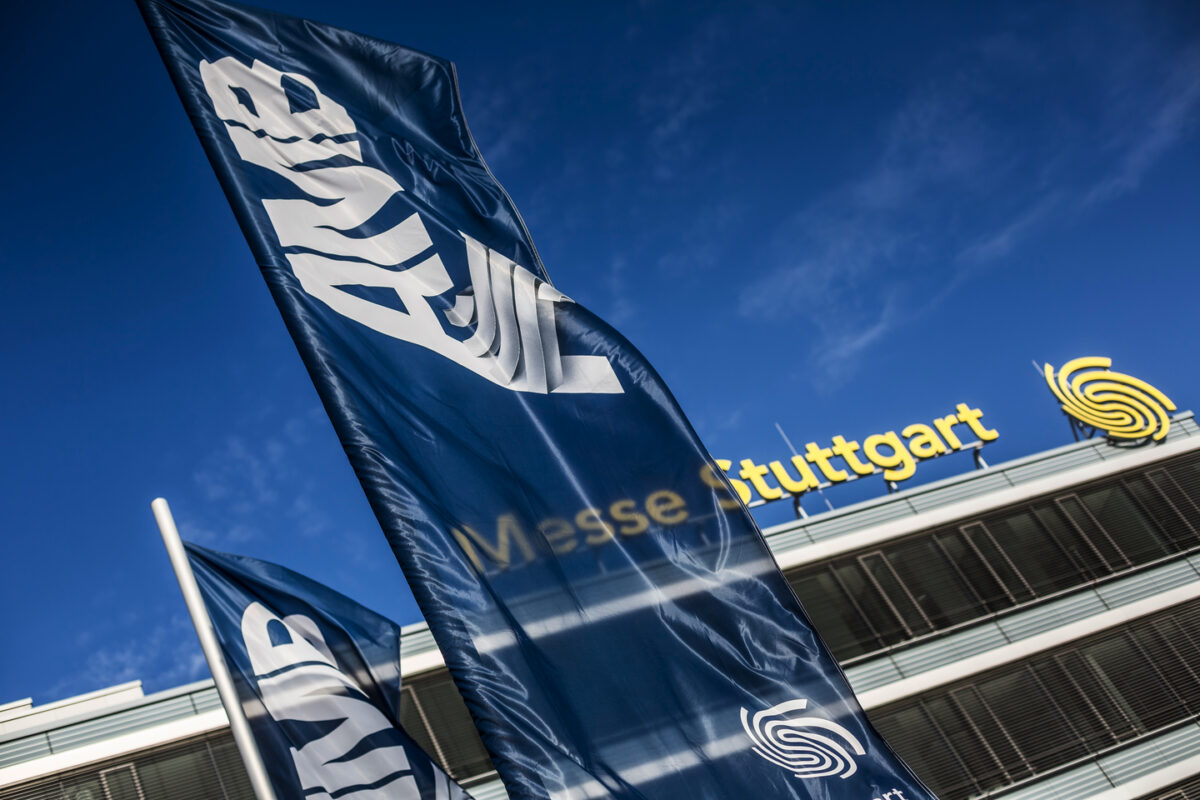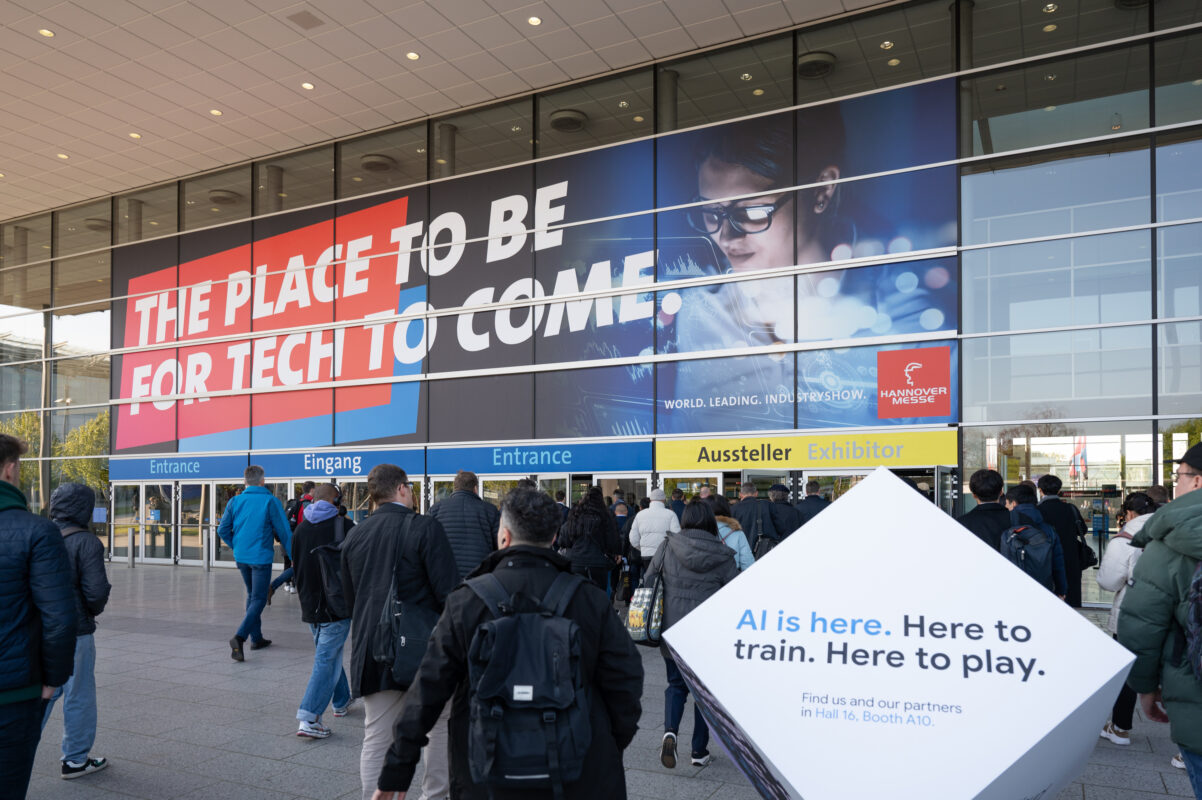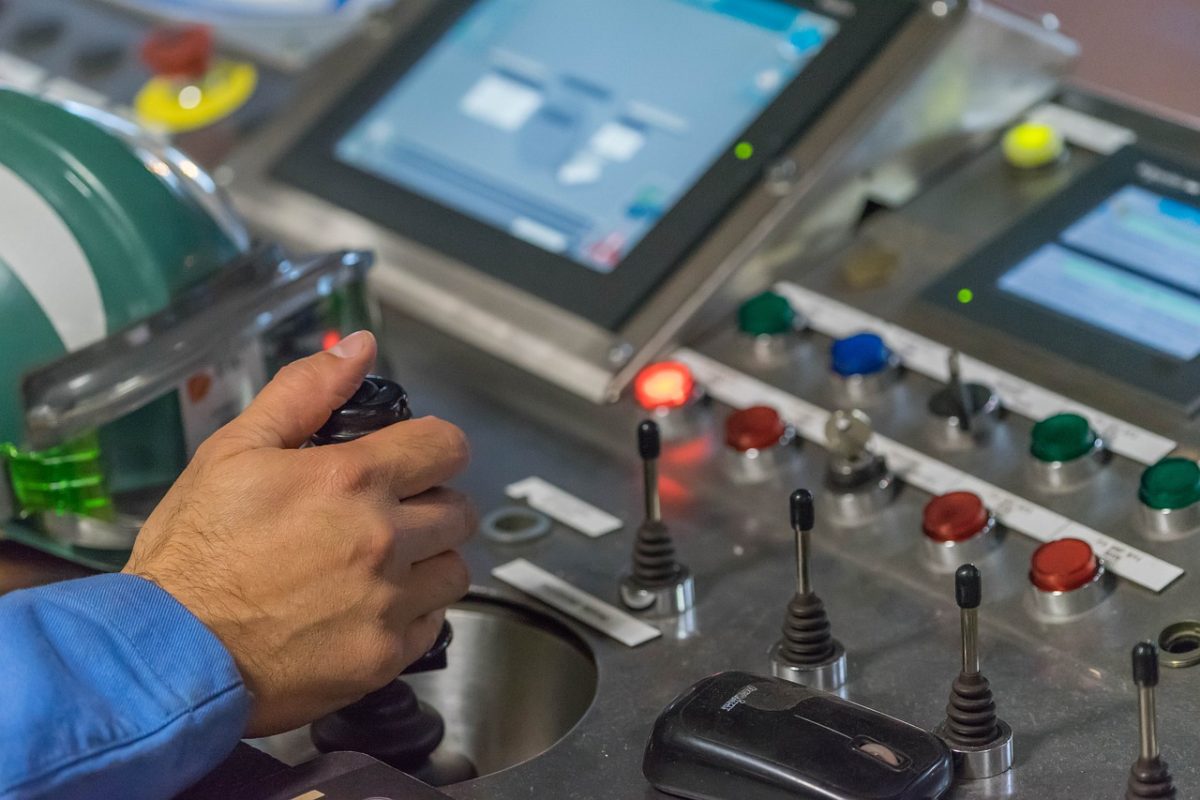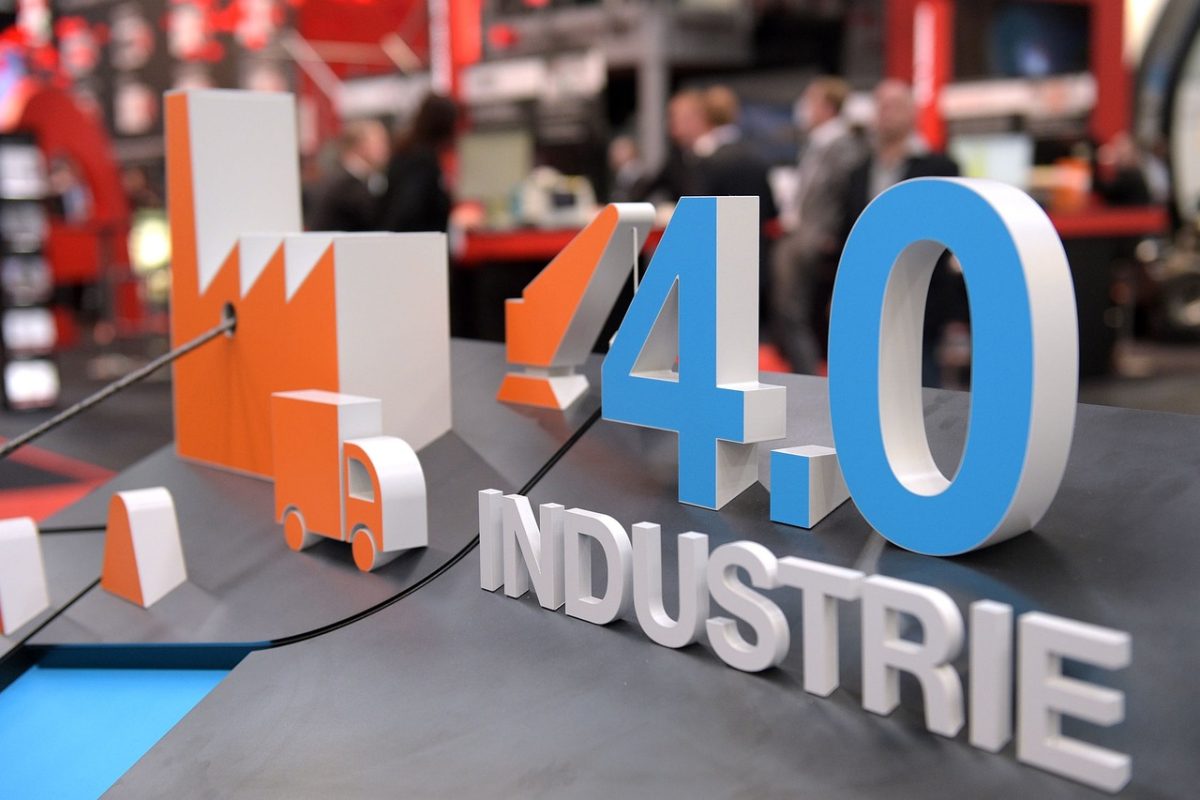
Latest NEWS
Powering the Future of Manufacturing: Revealing the Top 5 Key Trends at Motek Stuttgart 2024
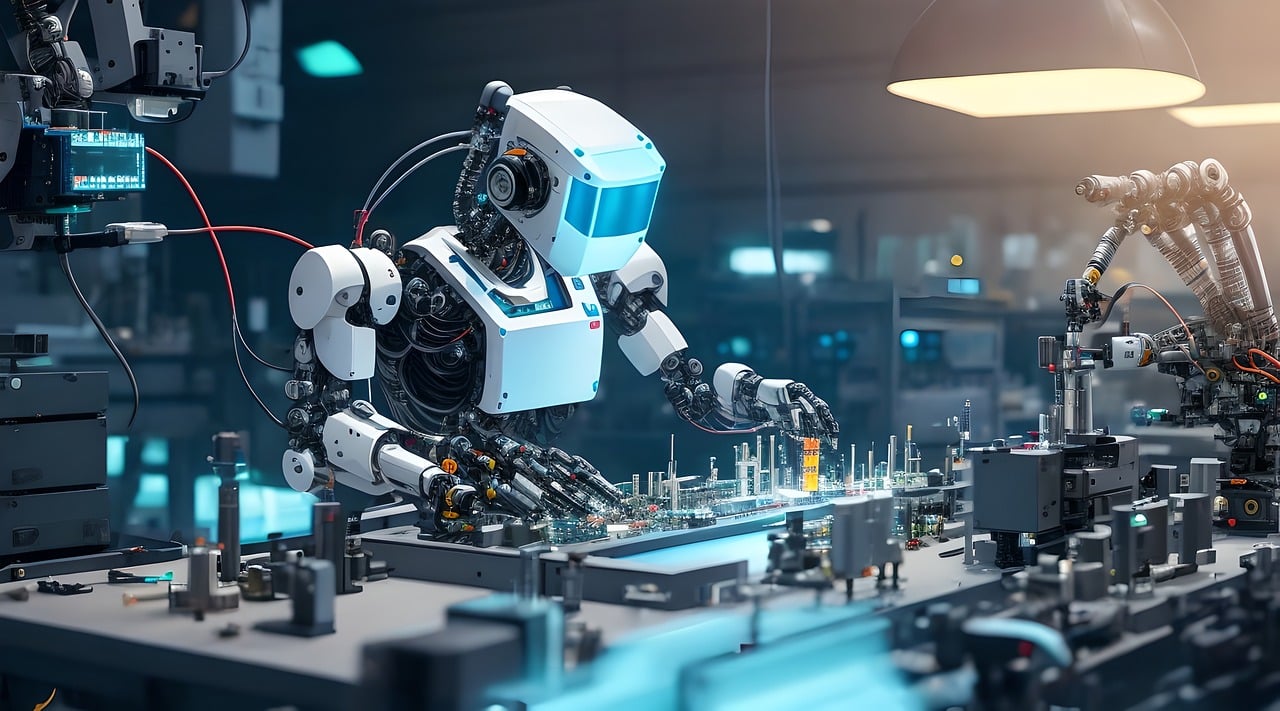
Industrial Automation and Robotics: Revolutionizing Manufacturing at Motek Stuttgart 2024
Industrial Automation and Robotics: Revolutionizing Manufacturing at Motek Stuttgart 2024
 The manufacturing industry has always been at the forefront of technological advancements. Over the years, we have witnessed the evolution of manufacturing processes, from manual labor to the introduction of machines and automation. However, the future of manufacturing is set to be revolutionized by industrial automation and robotics, and this was evident at the recent Motek Stuttgart 2024 exhibition.
The manufacturing industry has always been at the forefront of technological advancements. Over the years, we have witnessed the evolution of manufacturing processes, from manual labor to the introduction of machines and automation. However, the future of manufacturing is set to be revolutionized by industrial automation and robotics, and this was evident at the recent Motek Stuttgart 2024 exhibition.
Motek Stuttgart is one of the largest trade fairs for automation in production and assembly. It serves as a platform for industry professionals to showcase the latest innovations and trends in industrial automation and robotics. This year’s event was particularly exciting, as it revealed the top five key trends that will shape the future of manufacturing.
The first trend that emerged at Motek Stuttgart 2024 is the integration of artificial intelligence (AI) in manufacturing processes. AI has the potential to transform the way factories operate by enabling machines to learn and adapt to new situations. This technology allows for real-time data analysis, predictive maintenance, and improved decision-making. With AI, manufacturers can optimize production, reduce downtime, and enhance overall efficiency.
The second trend that caught the attention of attendees at Motek Stuttgart 2024 is the rise of collaborative robots, also known as cobots. Unlike traditional industrial robots, cobots are designed to work alongside humans, enhancing productivity and safety in the workplace. These robots are equipped with advanced sensors and algorithms that enable them to interact with humans and perform tasks that require precision and dexterity. Cobots are expected to play a significant role in industries such as automotive, electronics, and healthcare.
Another key trend showcased at Motek Stuttgart 2024 is the adoption of 3D printing in manufacturing. 3D printing, also known as additive manufacturing, allows for the creation of complex and customized parts with minimal waste. This technology has the potential to revolutionize supply chains by enabling on-demand production and reducing lead times. At the exhibition, attendees witnessed the capabilities of 3D printers in creating intricate designs and prototypes, showcasing the endless possibilities this technology offers.
The fourth trend that emerged at Motek Stuttgart 2024 is the implementation of Internet of Things (IoT) in manufacturing processes. IoT enables machines and devices to communicate and share data, creating a connected ecosystem. This connectivity allows for real-time monitoring, remote control, and predictive maintenance. By harnessing the power of IoT, manufacturers can optimize production, reduce costs, and improve product quality.
Last but not least, Motek Stuttgart 2024 highlighted the importance of cybersecurity in the era of industrial automation and robotics. As factories become more connected and reliant on digital technologies, the risk of cyber threats increases. Manufacturers need to prioritize cybersecurity measures to protect their intellectual property, sensitive data, and production processes. At the exhibition, experts showcased the latest advancements in cybersecurity solutions, emphasizing the need for a holistic approach to safeguarding manufacturing operations.
In conclusion, Motek Stuttgart 2024 provided a glimpse into the future of manufacturing, where industrial automation and robotics will play a pivotal role. The integration of AI, the rise of cobots, the adoption of 3D printing, the implementation of IoT, and the emphasis on cybersecurity are the key trends that will shape the industry. As manufacturers embrace these advancements, they will unlock new levels of efficiency, productivity, and innovation, powering the future of manufacturing.
Collaborative and Flexible Robotics: Enhancing Efficiency in Manufacturing Processes at Motek Stuttgart 2024
Collaborative and Flexible Robotics: Enhancing Efficiency in Manufacturing Processes at Motek Stuttgart 2024
The manufacturing industry is constantly evolving, and one of the key drivers of this evolution is the integration of robotics into manufacturing processes. At Motek Stuttgart 2024, one of the top trends that will be showcased is the use of collaborative and flexible robotics to enhance efficiency in manufacturing.
Collaborative robotics, also known as cobots, are designed to work alongside humans in a shared workspace. Unlike traditional industrial robots that are isolated in cages, cobots are equipped with advanced sensors and safety features that allow them to operate safely in close proximity to humans. This opens up new possibilities for collaboration between humans and robots, leading to increased productivity and efficiency in manufacturing processes.
One of the main advantages of collaborative robotics is their ability to automate repetitive and mundane tasks, freeing up human workers to focus on more complex and value-added activities. For example, cobots can be programmed to handle repetitive assembly tasks, such as picking and placing components, while human workers can focus on quality control and problem-solving. This not only improves efficiency but also reduces the risk of human error, leading to higher quality products.
In addition to collaboration, flexibility is another key aspect of robotics that will be highlighted at Motek Stuttgart 2024. Traditional industrial robots are often designed for specific tasks and require significant reprogramming and reconfiguration to adapt to new products or processes. However, flexible robots are designed to be easily reprogrammed and reconfigured, allowing manufacturers to quickly adapt to changing production needs.
Flexible robots can be programmed to perform a wide range of tasks, from assembly and welding to packaging and inspection. This versatility enables manufacturers to optimize their production processes and respond quickly to market demands. For example, if there is a sudden increase in demand for a particular product, manufacturers can easily reprogram their robots to increase production without the need for additional equipment or manpower.
Another advantage of flexible robotics is their ability to work in dynamic and unpredictable environments. Traditional robots are often limited to fixed workstations and require precise positioning and alignment. In contrast, flexible robots are equipped with advanced sensors and vision systems that allow them to adapt to changes in their environment. This makes them ideal for tasks that require interaction with moving objects or working in confined spaces.
At Motek Stuttgart 2024, manufacturers will have the opportunity to explore the latest advancements in collaborative and flexible robotics. They will be able to see firsthand how these technologies can enhance efficiency in manufacturing processes and improve overall productivity. From cobots that can work alongside humans to flexible robots that can adapt to changing production needs, the future of manufacturing is powered by collaborative and flexible robotics.
In conclusion, collaborative and flexible robotics are revolutionizing the manufacturing industry. By enabling collaboration between humans and robots and providing flexibility in production processes, these technologies are enhancing efficiency and productivity. Motek Stuttgart 2024 will showcase the top trends in collaborative and flexible robotics, giving manufacturers the opportunity to stay ahead of the curve and power the future of manufacturing.
Digital Factory and Industry 4.0 Solutions: Transforming Manufacturing at Motek Stuttgart 2024
Motek Stuttgart 2024, one of the most prestigious trade fairs in the manufacturing industry, is set to unveil the top five key trends that will shape the future of manufacturing. With a focus on digital factory and Industry 4.0 solutions, this event promises to showcase the latest advancements in technology and automation that are transforming the manufacturing landscape.
The first trend that will be highlighted at Motek Stuttgart 2024 is the integration of artificial intelligence (AI) and machine learning into manufacturing processes. AI-powered robots and machines are revolutionizing the way products are made, with the ability to learn and adapt to changing conditions. This technology not only improves efficiency and productivity but also enables manufacturers to produce customized products at a faster rate.
Another key trend is the adoption of Internet of Things (IoT) devices in manufacturing. IoT devices, such as sensors and smart machines, enable real-time monitoring and data collection, allowing manufacturers to optimize their operations and make informed decisions. This connectivity also facilitates predictive maintenance, reducing downtime and increasing overall equipment effectiveness.
Motek Stuttgart 2024 will also showcase the growing importance of cybersecurity in the manufacturing industry. As more devices become connected, the risk of cyber threats increases. Manufacturers are now investing in robust cybersecurity measures to protect their sensitive data and intellectual property. This trend highlights the need for collaboration between manufacturers, technology providers, and cybersecurity experts to develop secure and resilient manufacturing systems.
The fourth trend to be unveiled at Motek Stuttgart 2024 is the rise of collaborative robots, also known as cobots. Unlike traditional industrial robots, cobots are designed to work alongside humans, enhancing productivity and safety in manufacturing processes. These robots can perform repetitive tasks, freeing up human workers to focus on more complex and creative tasks. The integration of cobots into manufacturing workflows is expected to increase in the coming years, leading to a more harmonious and efficient work environment.
Lastly, Motek Stuttgart 2024 will shed light on the growing importance of sustainability in manufacturing. With increasing concerns about climate change and resource depletion, manufacturers are under pressure to reduce their environmental footprint. This trend encompasses various initiatives, such as energy-efficient manufacturing processes, waste reduction, and the use of renewable materials. By adopting sustainable practices, manufacturers not only contribute to a greener future but also improve their brand reputation and attract environmentally conscious consumers.
In conclusion, Motek Stuttgart 2024 will unveil the top five key trends that are shaping the future of manufacturing. From the integration of AI and machine learning to the adoption of IoT devices, these trends are revolutionizing the industry and driving efficiency and productivity. The focus on cybersecurity and the rise of collaborative robots highlight the importance of safety and collaboration in manufacturing. Lastly, the growing emphasis on sustainability reflects the industry’s commitment to a greener future. Motek Stuttgart 2024 promises to be an exciting event that will showcase the latest advancements in digital factory and Industry 4.0 solutions, setting the stage for the future of manufacturing.
Assembly and Handling Systems Innovations: Streamlining Production at Motek Stuttgart 2024
Motek Stuttgart 2024, one of the most prestigious trade fairs in the manufacturing industry, is set to showcase the latest advancements in assembly and handling systems. With the goal of streamlining production processes, these innovations are poised to revolutionize the way manufacturers operate. In this article, we will delve into the top five key trends that will shape the future of manufacturing at Motek Stuttgart 2024.
First and foremost, automation is set to take center stage at the trade fair. As manufacturers strive for increased efficiency and productivity, the integration of automated assembly and handling systems has become paramount. From robotic arms that can perform intricate tasks with precision to smart conveyor systems that optimize material flow, automation is set to transform the manufacturing landscape.
Another trend that will be on display at Motek Stuttgart 2024 is the rise of collaborative robots, or cobots. Unlike traditional industrial robots that operate in isolation, cobots are designed to work alongside human operators. These robots are equipped with advanced sensors and safety features, allowing them to perform tasks that require human dexterity while ensuring the safety of their human counterparts. The introduction of cobots not only enhances productivity but also opens up new possibilities for human-robot collaboration in manufacturing.
In addition to automation and cobots, the trade fair will also showcase advancements in artificial intelligence (AI) and machine learning. These technologies have the potential to revolutionize assembly and handling systems by enabling machines to learn from data and make intelligent decisions. AI-powered systems can analyze vast amounts of data in real-time, optimizing production processes and identifying areas for improvement. By harnessing the power of AI and machine learning, manufacturers can achieve higher levels of efficiency and quality in their operations.
Furthermore, the integration of Internet of Things (IoT) technology will be a key trend at Motek Stuttgart 2024. IoT enables the seamless connectivity of machines, sensors, and devices, creating a network of interconnected systems. This connectivity allows manufacturers to gather real-time data on machine performance, production output, and maintenance needs. By leveraging IoT technology, manufacturers can proactively address issues, minimize downtime, and optimize production processes.
Last but not least, sustainability will be a prominent theme at the trade fair. As the world grapples with the challenges of climate change and resource scarcity, manufacturers are increasingly focusing on sustainable practices. At Motek Stuttgart 2024, attendees can expect to see innovations in assembly and handling systems that prioritize energy efficiency, waste reduction, and the use of eco-friendly materials. From energy-efficient motors to recyclable components, these sustainable solutions not only benefit the environment but also contribute to cost savings for manufacturers.
In conclusion, Motek Stuttgart 2024 promises to be a platform for showcasing the top trends in assembly and handling systems innovations. From automation and cobots to AI and IoT integration, these advancements are set to revolutionize the manufacturing industry. By embracing these trends, manufacturers can streamline their production processes, enhance productivity, and contribute to a more sustainable future. As the industry continues to evolve, Motek Stuttgart 2024 serves as a testament to the power of innovation in shaping the future of manufacturing.
Advanced Manufacturing Technologies: Shaping the Future of Manufacturing at Motek Stuttgart 2024
Motek Stuttgart 2024, one of the most prestigious trade fairs in the manufacturing industry, is set to showcase the latest advancements in advanced manufacturing technologies. As the manufacturing landscape continues to evolve, it is crucial for industry professionals to stay ahead of the curve and embrace these emerging trends. In this article, we will reveal the top five key trends that will shape the future of manufacturing at Motek Stuttgart 2024.
First and foremost, additive manufacturing, also known as 3D printing, is revolutionizing the manufacturing process. This technology allows for the creation of complex and customized parts with reduced waste and increased efficiency. At Motek Stuttgart 2024, attendees can expect to see a wide range of 3D printers and materials, as well as demonstrations of how this technology can be integrated into existing manufacturing processes.
Another trend that will be on full display at Motek Stuttgart 2024 is the Internet of Things (IoT) and its impact on manufacturing. IoT refers to the network of interconnected devices that can communicate and share data with each other. In the manufacturing industry, this means that machines, sensors, and other equipment can collect and analyze data in real-time, leading to improved productivity and predictive maintenance. Visitors to the trade fair can expect to see demonstrations of IoT-enabled machines and learn how this technology can optimize their manufacturing operations.
Automation is another key trend that will be showcased at Motek Stuttgart 2024. With advancements in robotics and artificial intelligence, manufacturers are increasingly turning to automation to streamline their processes and reduce costs. At the trade fair, attendees can witness the latest robotic systems in action, from collaborative robots that work alongside human operators to fully autonomous machines that can perform complex tasks with precision and speed.
The fourth trend that will be highlighted at Motek Stuttgart 2024 is augmented reality (AR) and virtual reality (VR) in manufacturing. AR and VR technologies have the potential to transform the way manufacturers design, simulate, and train their workforce. By overlaying digital information onto the physical world, AR can provide real-time instructions and guidance to workers, while VR can create immersive training environments. Visitors to the trade fair can experience firsthand how AR and VR can enhance productivity and improve safety in manufacturing.
Last but not least, sustainability will be a major focus at Motek Stuttgart 2024. As the world becomes more environmentally conscious, manufacturers are under increasing pressure to reduce their carbon footprint and adopt sustainable practices. At the trade fair, attendees can explore innovative solutions for energy-efficient manufacturing, waste reduction, and recycling. From eco-friendly materials to renewable energy sources, Motek Stuttgart 2024 will showcase the latest advancements in sustainable manufacturing.
In conclusion, Motek Stuttgart 2024 will be a platform for industry professionals to discover the top five key trends that will shape the future of manufacturing. From additive manufacturing and IoT to automation and AR/VR, these advancements have the potential to revolutionize the manufacturing landscape. Additionally, the focus on sustainability highlights the industry’s commitment to reducing its environmental impact. By staying informed and embracing these trends, manufacturers can position themselves at the forefront of innovation and drive the future of manufacturing forward.


